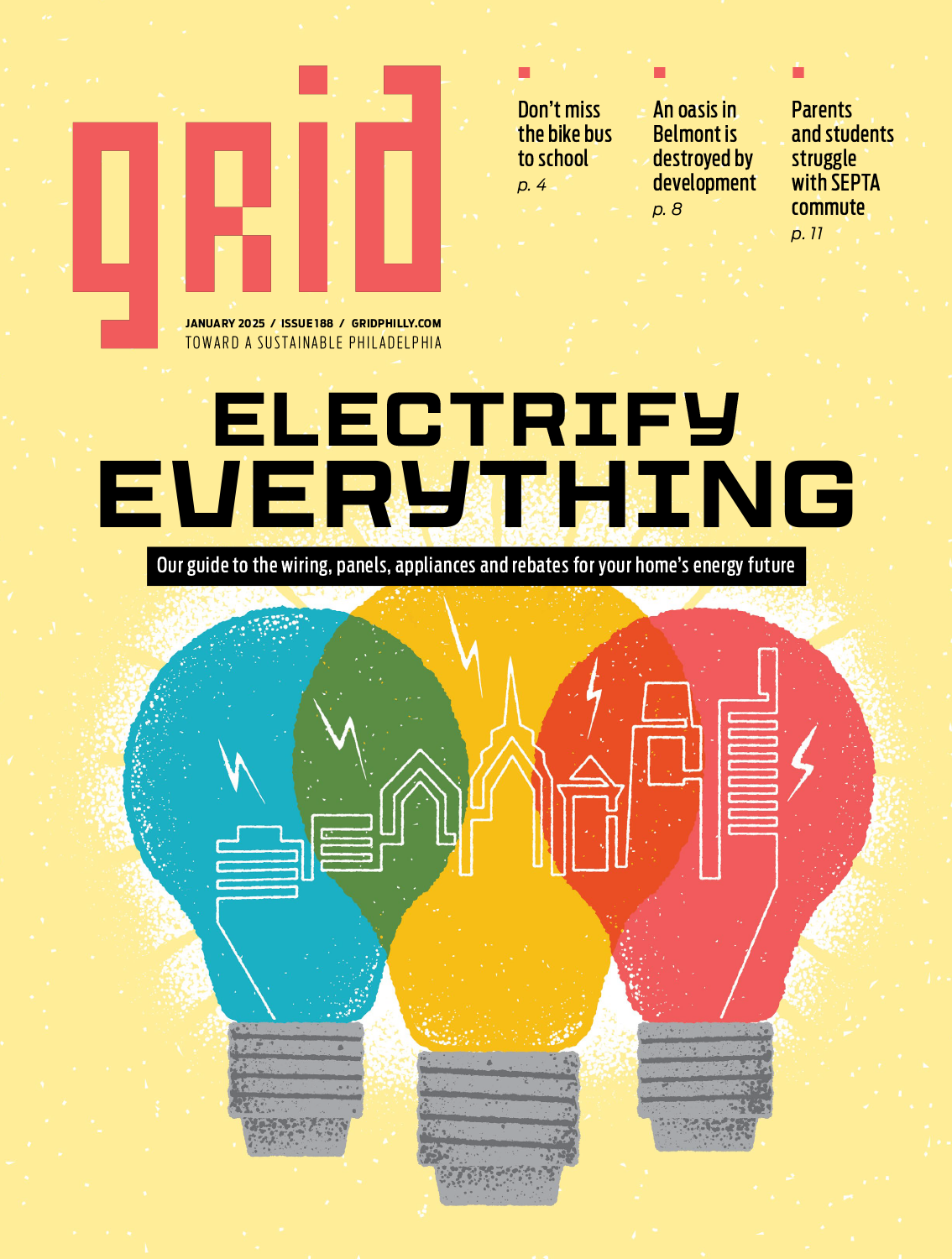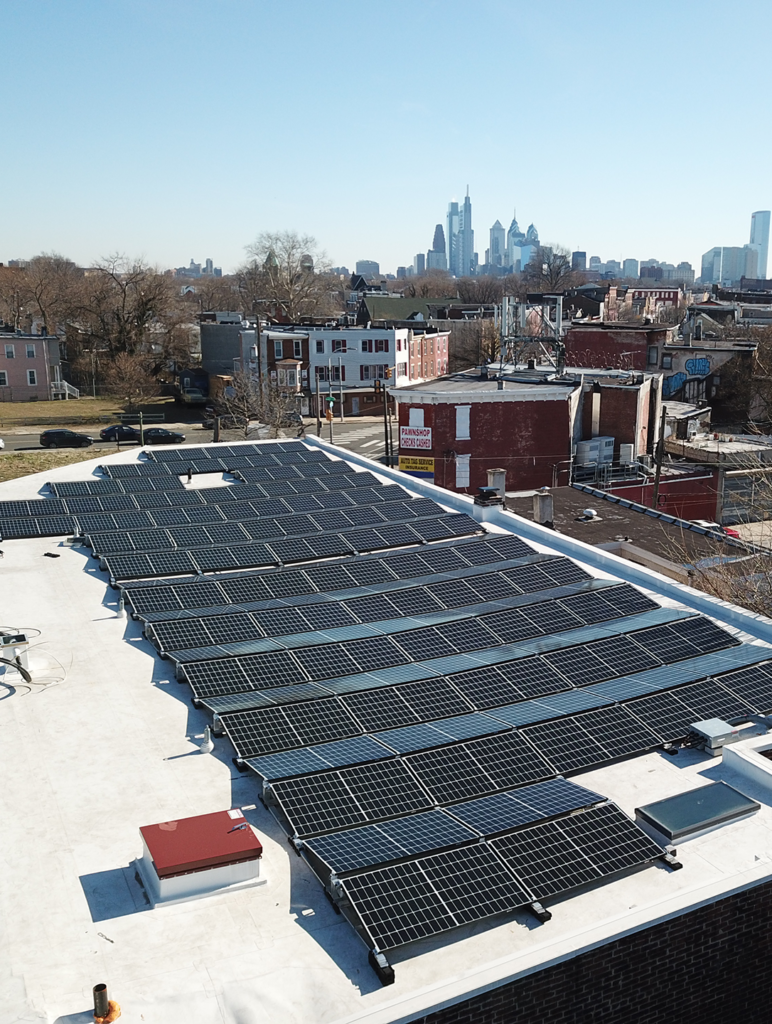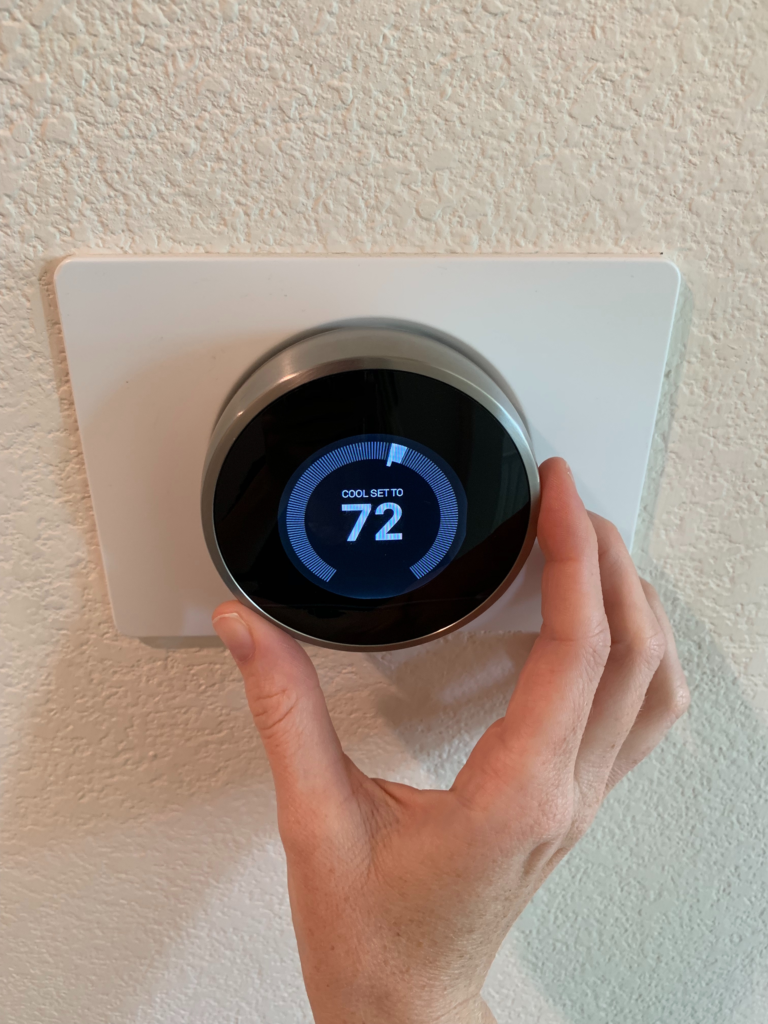The year is 2050. On every street across the wide expanse of the United States, nearly every vehicle that goes by emits only the quiet whine of an electric motor. A few folks still ride by in antique, gas-powered cars, but in many places such vehicles are greatly outnumbered even by electric bikes.
The houses lining the streets are also quiet, peaceful. There’s nothing coming out of their chimneys, no big tanker trucks rumbling up with “heating oil” emblazoned across their sides. On the roofs of many dwellings are arrays of solar panels. Elsewhere along home exteriors, the rectangular frames and circular fans of heat pumps jettison warmth inside or out, depending on the season. Within, appliances are all electric: stoves, water heaters, laundry machines all do their work without spewing noxious chemical byproducts.
Globally, climate change is arrested. Several degrees of warmth have undeniably altered the planet and the human civilization that inhabits it. Tragedies unfold on every continent, some documented, many not. But humanity has bent the curve of warming, and can look forward to the future with hope instead of trepidation.
Yes, this is a dream for our planet that may or may not come true. We hope that this edition of Grid, our Guide to Home Electrification, will inspire you to play your part.
The year 2050 is not selected at random. That’s when many international climate scientists, including those gathered under the banner of the United Nations Intergovernmental Panel on Climate Change (IPCC), say that most of the developed world will need to have almost fully transitioned away from using fossil fuels to power our daily life, and toward clean, carbon-free sources of energy. That’s if we hope to check global warming before it exceeds two degrees Celsius above preindustrial levels and triggers even more catastrophic, cascading effects.
Scientists say we still have a window. The next few decades must see a transition.








